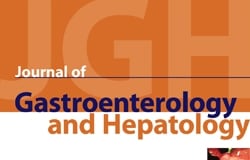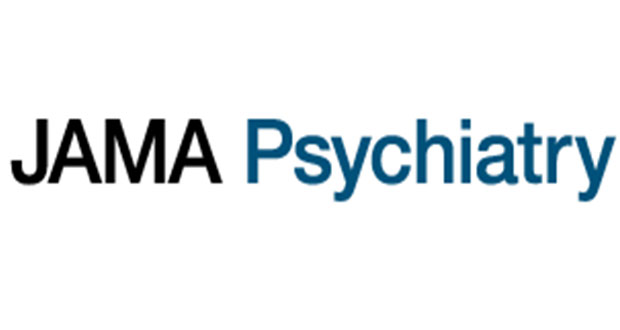
“At 70, Singer Olivia Newton-John Using Cannabis To Treat Cancer. Olivia Newton-John says she has been diagnosed with cancer for the third time in three decades. Newton-John says she’s “treating it naturally and doing really well.” The “Grease” star says she is taking cannabis oil, made from marijuana her husband John Easterling grows on their ranch in Santa Barbara. She said, “I believe I will win over it.”” https://sanfrancisco.cbslocal.com/2018/09/10/olivia-newton-john-cannabis-cancer/
“Grease star Olivia Newton-John is battling her breast cancer with cannabis. Grease star Olivia Newton-John is offering an update on her third battle with cancer and revealing how cannabis has become a key component in her treatment plan.” http://www.digitalspy.com/showbiz/news/a865881/grease-olivia-newton-john-battling-breast-cancer-with-cannabis/
“Olivia Newton-John Says She’s Managing Breast Cancer with Cannabis. Newton-John explained that she uses cannabis oil to treat the pain and help her sleep, much of which her husband John Easterling (who runs Amazon Herb Company) grows for her. “I’m very lucky that I live in a state where it’s legal and that I have a husband who is a plant medicine man,” she said. “How lucky is that?” Newton-John also advocated for legalizing cannabis in her home country of Australia, adding, “My dream is that it will be available to all the cancer patients or people going through cancer or any kind of disease that causes pain.” Newton-John turns 70 on September 26.” http://exclaim.ca/music/article/olivia_newton-john_says_shes_managing_breast_cancer_with_cannabis
“Olivia Newton-John diagnosed with cancer for a third time but believes she ‘will win’ health battle with homegrown cannabis treatment. The Grease actress is using homegrown cannabis as part of her treatment to fight the disease. She drinks a cannabis mixture made by her herbalist husband to control the illness.” https://www.mirror.co.uk/3am/celebrity-news/olivia-newton-john-diagnosed-cancer-13220595
“Olivia Newton-John uses medical marijuana to treat cancer” https://www.buzz.ie/celebs/olivia-newton-john-drinks-cannabis-extract-numb-pain-cancer-253796
“Olivia Newton-John reveals marijuana helping her beat cancer” http://www.9news.com.au/national/2017/09/03/08/58/olivia-newton-john-backs-medicinal-cannabis
“Olivia Newton-John’s cancer battle is going well… Thanks to cannabis oil!” https://closeronline.co.uk/celebrity/news/olivia-newton-john-daughter-chloe-lattanzi-cannabis-oil-cancer/

“Olivia Newton-John ‘Feeling Great’ as Source Denies ‘False’ Report Her Cancer Has Spread Further. “This is just false,” a source close to Newton-John tells PEOPLE. “She’s feeling and looking great. Everything that’s being reported about her diagnosis is the same news she released last year.” https://people.com/music/olivia-newton-john-denies-false-report-cancer-spread/
“Olivia Newton-John Reveals Secret Cancer Battle in 2013: ‘I Just Decided to Keep It to Myself.” Last year, Newton-John announced she’d been diagnosed with stage 4 breast cancer that had metastasized to her back, but the 69-year-old actress has been treating the illness with natural wellness therapies, including medicinal marijuana. A source close to Newton-John tells PEOPLE that she’s been feeling fine and healthy as of late.” https://people.com/music/olivia-newton-john-secret-cancer-battle-decided-keep-myself/
“Olivia Newton-John: It’s not just cancer sufferers needing help, carers do too. The mum-of-one discovered she had a tumour in the base of her spine last year. She had previously overcome breast cancer in 1992 after undergoing surgery and chemo, before secretly beating the disease again in 2013. Praising both husband John and her daughter Chloe, Olivia said: “Of course they’ve been a huge support, I think it’s hard for people on the outside – the care takers – because they have to be taken care of too sometimes, because it is hard for them.” John grows cannabis plants for Olivia, as she has chosen natural therapies such as cannabis oil to help ease her pain from the disease, instead of opioids and other drugs such as chemo this time round. He grows the plants in California where the couple live, as it is legal there.” https://startsat60.com/entertainment/tv-movies/olivia-newton-john-cancer-sufferers-carers-husband-john-help

“Olivia Newton John’s cannabis oil for cancer treatment” https://www.msn.com/en-nz/health/medical/olivia-newton-johns-cannabis-oil-for-cancer-treatment/ar-AAoTvE3
“‘I believe I will win’: Olivia Newton-John, 69, reveals the tragic cancer diagnosis she kept secret… as she fights the disease for a third time with the help of her husband” https://www.dailymail.co.uk/tvshowbiz/article-6148177/Olivia-Newton-John-69-reveals-tragic-cancer-diagnosis-kept-secret.html
“Olivia’s husband grows her medical marijuana” https://au.be.yahoo.com/entertainment/celebrity/a/37038356/john-easterling-home-grows-olivia-newton-johns-medical-marijuana/
“Olivia Newton-John Reveals She Was Unable to Walk After Cancer Relapse – and She’s Using Marijuana to Ease Pain. The 68-year-old said that the “hardest thing” has been her pain level, admitting that trying to do shows was “really agonizing.” Now, she’s been treating the pain with medical marijuana her husband John Easterling grows. “I’ll be fine,” said Newton-John.” https://people.com/music/olivia-newton-john-cancer-update-couldnt-walk-australian-60-minutes/

“Olivia Newton-John on Being a Cancer ‘Thriver’ and Using Weed to Cope with Her Relapse: It’s a ‘Healing Plant’. The actress also shared that she’s been treating the pain with medical marijuana her husband John Easterling grows. “People have this vision from the ’60s of people just sitting around and getting stoned,” she said. “It’s not about that. This plant is a healing plant. I think we need to change the vision of what it is because it helped me greatly and it helps with pain and inflammation.”” https://people.com/music/olivia-newton-john-cancer-relapse-weed/
“Olivia Newton-John reveals she is on medical cannabis for cancer” https://www.dailymail.co.uk/health/article-6171365/Olivia-Newton-John-reveals-medical-cannabis-breast-cancer.html
“‘It’s a magical miracle plant:’ Olivia Newton-John reveals husband John Easterling grows marijuana to aid her breast cancer battle” https://www.dailymail.co.uk/tvshowbiz/article-4869940/Olivia-Newton-John-benefits-medical-marijuana.html
“‘It’s really important and should be available’: Olivia Newton-John speaks about how ‘medical cannabis’ is helping her beat breast cancer” https://www.dailymail.co.uk/tvshowbiz/article-4846664/Olivia-Newton-John-talks-cannabis-use-time.html
“Olivia Newton-John voices her support for medical marijuana after revealing her husband grows the plant to aid her breast cancer battle” https://www.dailymail.co.uk/tvshowbiz/article-4891760/Olivia-Newton-John-voices-support-medical-marijuana.html

“‘Medical cannabis has helped me a lot’: Olivia Newton-John speaks candidly about the ‘healing remedies’ that have helped CURE her pain during her agonising cancer battle” https://www.dailymail.co.uk/tvshowbiz/article-5181401/Olivia-Newton-John-speaks-candidly-medical-cannabis.html
“The Olivia Newton-John Cancer Wellness & Research Centre is at the frontier of cancer medicine, with over 200 ongoing clinical trials.” https://www.onjcancercentre.org/patients-family/clinical-trials

http://www.thctotalhealthcare.com/olivia-newton-john-champions-the-use-of-magical-miracle-medicinal-cannabis/














